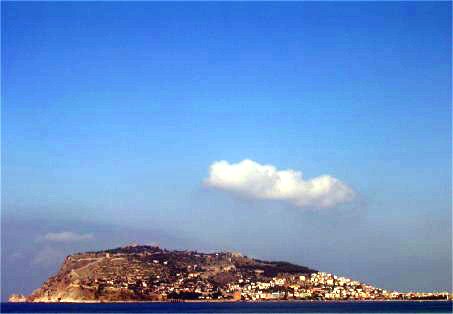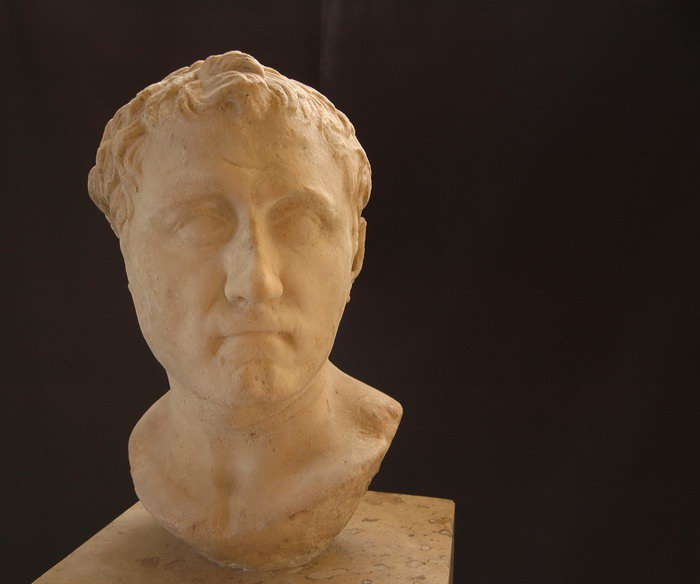Cilician Pirates
Q1741306Cilician Pirates: group of buccaneers, destabilizing force in the eastern Mediterranean world in the late second and early first centuries BCE.

There have always been pirates in the ancient world, but in the second half of the second century BCE, they became really dangerous and started to destabilize the Mediterranean world. Two factors contributed to their rise. To start with, the powerful Seleucid empire, which had controlled the seas, started to disintegrate after c.150, when an usurper named Alexander Balas became king. In the second place, the Roman elite had to buy slaves to work on the large plantations (latifundia) in Italy. Although Rome already sent a navy, commanded by a praetor named Marcus Antonius, as early as 104 BCE, it refused to take real measures. It needed the pirates.
As a consequence, the Baleares and Crete became pirates' nests, and -at a later stage- western Cilicia. Desperadoes from all countries flocked to these regions and started a new life as pirate. The wars between the Romans and king Mithridates VI of Pontus (89-82) destabilized Asia Minor and gave the Cilician pirates extra power.note
Typically, the pirates attacked the slow trading vessels and captured the crew. The large and unwieldy grain ships, which carried hundreds of tons of Egyptian wheat to Italy, were among their favorite targets. Usually, the captives were brought to the island Delos in the Aegean sea, the center of the international slave trade. It is recorded that on at least one occasion, no less than 10,000 people were sold on a single day. They were now transported to Italy and found work at the plantations of the rich Roman senators and knights.
Rich captives were not sold, but kept as hostages. Usually, the family of the captive paid a ransom. For example, when Julius Caesar was seized in 79, he paid 25 talents (500 kg) of silver. Four years later, he was captured again. This time, Caesar demanded that the ransom was to doubled (after all, he was an aristocrat) and promised to punish his captors. After the ransom had been paid, Caesar manned some ships, defeated the bandits and had them crucified (text).
Although the Roman elite benefited from the pirates' activities, sometimes, they sent out soldiers to punish them. Usually, these attempts to restore order were half-hearted. In 74, the son of the already mentioned Marcus Antonius, also called Marcus Antonius, received special powers to fight against the pirates of Crete. After he had expelled them from the western Mediterranean, he invaded their base in the winter of 72/71. However, he was defeated, died soon after, and no one really cared about pursuing the war. (His son was Mark Antony, the successor of Julius Caesar.)
At about the same time, Publius Servilius Vatia was sent out to reduce Cilicia, and he gained some remarkable successes: he defeated the pirates at sea and cleared Lycia and Pamphylia (77). In the following year, he invaded Cilicia proper, and he was ready to strike against the pirates' base at Coracesium ("crow's nest"; modern Alanya), when a new war against Mithradates broke out, which was to last for ten years (73-63).
After the outbreak of this war and the defeat of Marcus Antonius at Crete, the pirates had a brief respite. They increased their power and may have negotiated with Spartacus, the leader of an army of runaway slaves that invested the Italian countryside in 73-71 and wanted to leave the country. In the same period, the Cilician pirates attacked the coasts of Italy, showing their contempt for the Romans.
The Romans now understood that the Cilician pirates were not an isolated group of desperadoes, but a powerful ally of Mithradates of Pontus. One of the consuls of 69, Quintus Caecilius, and three legions were sent to Crete, which was treated cruelly and declared a Roman province (67).

In the same year, a tribune named Gabinius proposed a law that the Roman general Gnaeus Pompey should be given extraordinary powers to fight against the pirates, who were by now threatening the food supply of Rome. Pompey was to receive enormous quantities of money, 20 legions, 500 ships, and authority equal to that of provincial governors for 75 kilometers inland. It was a drastic but necessary measure, and although the Senate tried to prevent that one man became so influential, the People's Assembly accepted the Lex Gabinia.
Immediately, the price of wheat at Rome, which had risen to unprecedented levels, returned to normal levels: Pompey was expected to put an end to the pirates' activities. He did not disappoint the people. He appointed thirteen legates (assistants) and divided the Mediterranean sea in thirteen sections; with a mobile force of sixty ships, he drove the pirates into the arms of the legates. Later, he claimed that he had liberated the western Mediterranean in only forty days, and this is probably true: most pirates had decided to return to the east.
Now, Pompey could turn his attention to Cilicia proper. He defeated the pirates near their capital Coracesium and took this mountain fortress, after which he could launch mopping-up operations. After three months, he was master of the situation.
Pompey's victory was less spectacular than he presented it. The secret of his success was, of course, that the Cilician pirates had already been defeated by Publius Servilius Vatia. Their actions along the Italian shores were caused by the fact that they could no longer safely use Cilicia as their base. They were adrift. Pompey understood this, and offered the defeated pirates a new life: he settled them in towns far from the sea, where they could become farmers.
Pompey's extraordinary powers were to last three years, but the war was already over. In Rome, the tribune Manilius proposed that the war against Mithradates, the ally of the pirates, should now be entrusted to Pompey. The successful general took over the army of general Lucullus and put an end to the Third Mithradatic war. Later, he invaded Judaea; after all, among the Cilician pirates had been Jews. Pompey captured Jerusalem (63 BCE; more), and on his way back to Italy, he visited Crete, where he settled the situation.
This was the end of piracy in the Mediterranean. The Cilician pirates would have been a footnote in the history of the Roman empire, were it not that the expedition against them marked the rise of Pompey. For almost twenty years, he was unchallenged as the first man in Rome. Moreover, his extraordinary command had shown the road to the future: Julius Caesar was to use legates during the war in Gaul, and Octavian was to do the same when he organized the Roman empire.